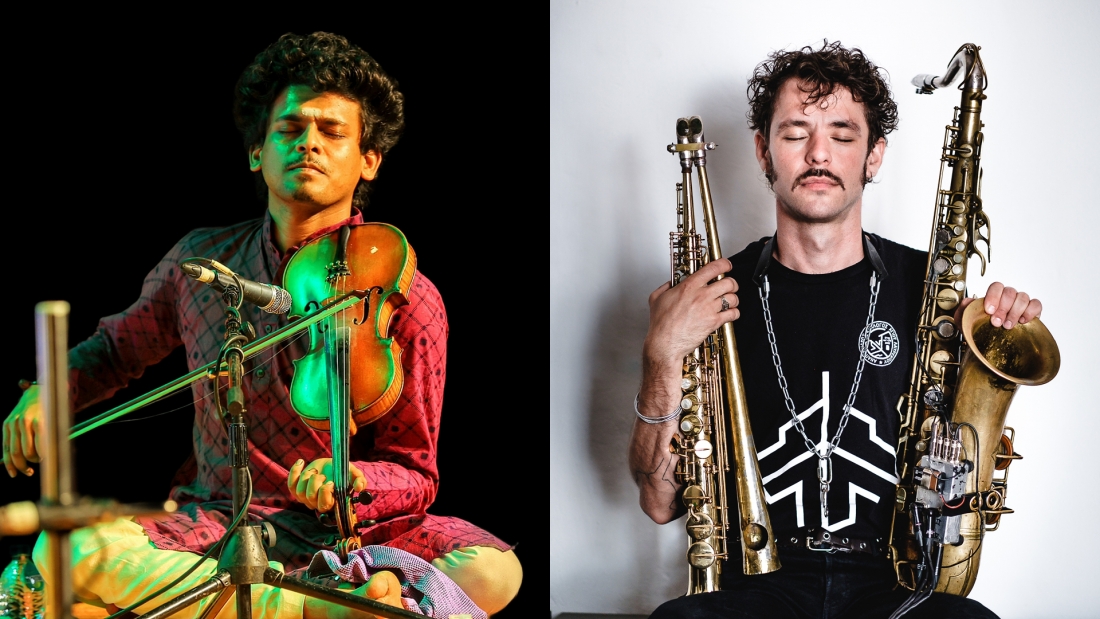Universidade Lusófona do Porto
About Ecological imaginaries around “nature”
Contingência e Necessidade
Teresa Castro
Universidade de Paris 3 - Sorbonne Nouvelle
June
2022
Wed
29
Sinopse
At a time when the unexpected has shaken the certainties of modernity based on science and technique, thinking about contingency and its opposite, necessity, is thinking about the possibility that something happens, doesn't happen, or happens in another way, in the confrontation between the unpredictable and the providential, between the indeterminable and the constant. To banish the contingent, natural or historical causality is introduced, which depends on probability – as if the real were ordered – as well as its constant monitoring and surveillance. What is certain is that the contingent breaks out again and again, because the greater the control, the more the contingent emerges in its most brutal forms, that of accident or catastrophe, or lighter, that of failure or breakdown. The game of contingency and its control is one of the characteristic features of modernity.
Ecological imaginaries around “nature”
In the face of the ecological crisis, the notions of contingency and necessity gain new life. On the one hand, climate change, the depletion of natural resources or the sixth mass extinction challenge the articulation (if not the rigid boundaries) between the necessary (what cannot be otherwise) and the contingent (what is susceptible to to be or not to be, or to be otherwise). On the other hand, the ecological crisis has profoundly destabilized what for a long time we understood to be the immutable and purely mechanical laws of “nature”, disputing the supposed exteriority of the latter and inviting us to rethink the autonomy of the human sphere and the agency of the world. Natural. By shifting (and thus reconfiguring) the debate around contingency and necessity to the field of visual culture, the purpose of this communication is to interrogate the way in which the contingent, the necessary, but also the possible (associated in this context with alternative visions of the future), have inhabited the ecological imaginaries around “nature”.
Teresa Castro has been an associate professor in film studies at the Université Sorbonne Nouvelle since 2011, also working as a film critic and programmer. Graduated in art history (FCSH/UNL and Birkbeck College, London), she was a post-doctoral researcher at the quai Branly museum (Paris) and a guest researcher at the Max Planck Institute for the History of Science (Berlin). A significant part of her current research focuses on the links between cinema and animism, ecocriticism, ecofeminism, and plant life forms in visual culture. In this context, she published “The Mediated Plant” (e-flux journal, 2019) and co-edited the collective book Puissance du végétal et cinéma animiste. La vitalité révélée par la technique (Presses du réel, 2020). Her essays “The Past of the Future: A Cyber-Vegetable Fable” and “Navigating Turbid Waters with Lichens, Fungi and Ruderal Plants” were recently published in the exhibition catalogs Hito Steyerl: I Will Survive (K21 Düsseldorf / Center Georges Pompidou, Paris , 2021) and Ciencia Fricción (CCCB, Barcelona, 2021), the latter giving rise to the series “Segredos da Natureza”, produced by Culturgest.
Ecological imaginaries around “nature”
In the face of the ecological crisis, the notions of contingency and necessity gain new life. On the one hand, climate change, the depletion of natural resources or the sixth mass extinction challenge the articulation (if not the rigid boundaries) between the necessary (what cannot be otherwise) and the contingent (what is susceptible to to be or not to be, or to be otherwise). On the other hand, the ecological crisis has profoundly destabilized what for a long time we understood to be the immutable and purely mechanical laws of “nature”, disputing the supposed exteriority of the latter and inviting us to rethink the autonomy of the human sphere and the agency of the world. Natural. By shifting (and thus reconfiguring) the debate around contingency and necessity to the field of visual culture, the purpose of this communication is to interrogate the way in which the contingent, the necessary, but also the possible (associated in this context with alternative visions of the future), have inhabited the ecological imaginaries around “nature”.
Teresa Castro has been an associate professor in film studies at the Université Sorbonne Nouvelle since 2011, also working as a film critic and programmer. Graduated in art history (FCSH/UNL and Birkbeck College, London), she was a post-doctoral researcher at the quai Branly museum (Paris) and a guest researcher at the Max Planck Institute for the History of Science (Berlin). A significant part of her current research focuses on the links between cinema and animism, ecocriticism, ecofeminism, and plant life forms in visual culture. In this context, she published “The Mediated Plant” (e-flux journal, 2019) and co-edited the collective book Puissance du végétal et cinéma animiste. La vitalité révélée par la technique (Presses du réel, 2020). Her essays “The Past of the Future: A Cyber-Vegetable Fable” and “Navigating Turbid Waters with Lichens, Fungi and Ruderal Plants” were recently published in the exhibition catalogs Hito Steyerl: I Will Survive (K21 Düsseldorf / Center Georges Pompidou, Paris , 2021) and Ciencia Fricción (CCCB, Barcelona, 2021), the latter giving rise to the series “Segredos da Natureza”, produced by Culturgest.
Info sobre horário e bilhetes
Wed
29.06
18:30
RivoliSmall Auditorium
Aditional info
- Price Free entrance
Age recommendation 6+






